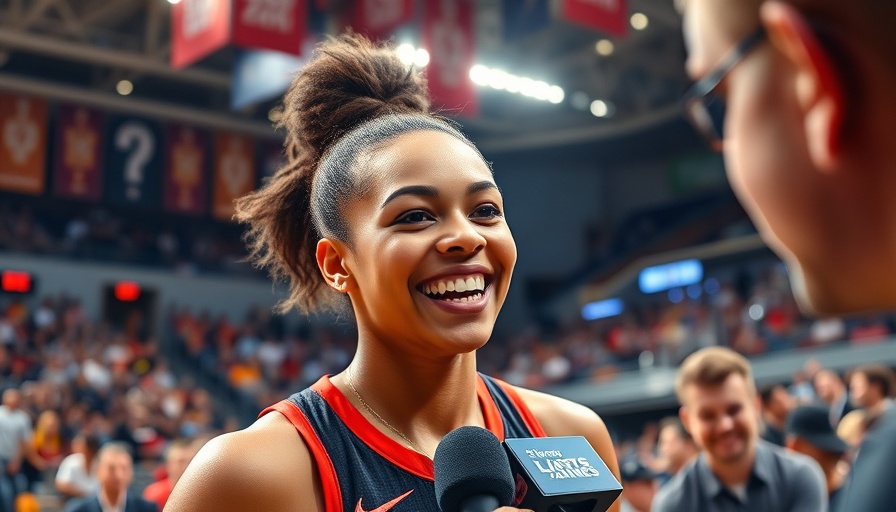
Feeling the Chill: Understanding the Cold Snap's Impact on Sports
Winter is a harsh reality that often catches us off guard. The phrase, “Cold 🥶,” brings to mind not only frigid temperatures but also how these extreme weather conditions affect our favorite sports. From the freezing sidelines of the NFL to icy courts of college basketball, layers of complexity unfold beyond just a chilly day. In this article, we dive into the ramifications of cold weather on sports—whether it's altering player performance or shifting fan experiences.
In 'Cold 🥶 (via thejrhmedia/IG)', the discussion dives into how extreme weather affects sports events, prompting a deeper exploration of the implications that arise from such chilly conditions.
Historical Context: Cold Weather’s Role in Sports
Sports history is littered with iconic moments that took place during extreme cold. Consider the 1967 NFL Championship known as the "Ice Bowl," where the Green Bay Packers faced the Dallas Cowboys in sub-zero temperatures. Such games invite nostalgia and excitement but also highlight the struggles athletes endure against nature. Understanding this context underscores why games and championships often face rescheduling or re-routing, particularly in sports like outdoor football and baseball during the winter months.
Social Connection: Fans and Players in the Cold
The emotional stakes rise in cold weather games. As fans bundle up in layers, the sense of community strengthens—shared experiences among friends and family create rich narratives that extend beyond just watching a game. The camaraderie found in the frost adds to the psychological advantage for home teams. For players, however, the cold can mean stiffness and decreased performance. Coaches have to adjust strategies, leading to a fascinating chess match between management and Mother Nature.
The Science Behind Cold Weather Performance
Studies show that athletes facing extreme cold may experience decreased physical performance or increased risk of injury due to tightened muscles. For instance, NFL players like Patrick Mahomes and Aaron Rodgers find themselves navigating not just opposing teams but the icy grip of winter on the field, which could impact passing accuracy or agility. Teams must adapt, whether through adjustments in practice or gear, highlighting the intersection of science and sport.
Looking Ahead: Future Predictions for Cold Weather in Sports
As weather patterns shift due to climate change, the frequency of extreme cold snaps could become more common. This poses a dilemma for leagues, college programs, and fans alike. New technologies such as advanced heating systems for fields or domed stadiums could become standard for outdoor games. Anticipating such changes not only enhances spectator experience but could also reshape player recruitment as teams seek athletes with adaptability in varying conditions.
Common Misconceptions About Cold Weather and Sports
Many believe that athletes perform poorly in cold temperatures due to lack of motivation. However, the reality is more nuanced. While conditions can influence energy levels, mental preparation is crucial. There’s the myth that all cold-weather athletes must be physically tougher; in truth, it’s about strategy and adaptation.
Practical Tips for Enjoying Sports in the Cold
Fans yearning to brave the cold for live sports can prepare to make the experience enjoyable. Layering is key—think thermals, windproof jackets, and insulated footwear. Additionally, hydration is crucial; while many associate winter with lower hydration needs, dehydration can still set in. Utilize hot drinks and portable heaters in the stands to enhance your experience without sacrificing comfort.
Call to Action: Engage with Your Local Sports Community
As you gear up for events, consider getting involved in your local sports community. Whether you’re attending college basketball games or following NFL playoff discussions, engage with those around you. Seek out interactive sports experiences, celebrate the thrill of competition, and foster connections that warm you against winter's chill. Don't let the cold keep you away—embrace it!
 Add Element
Add Element  Add Row
Add Row 



 Add Row
Add Row  Add
Add 


Write A Comment